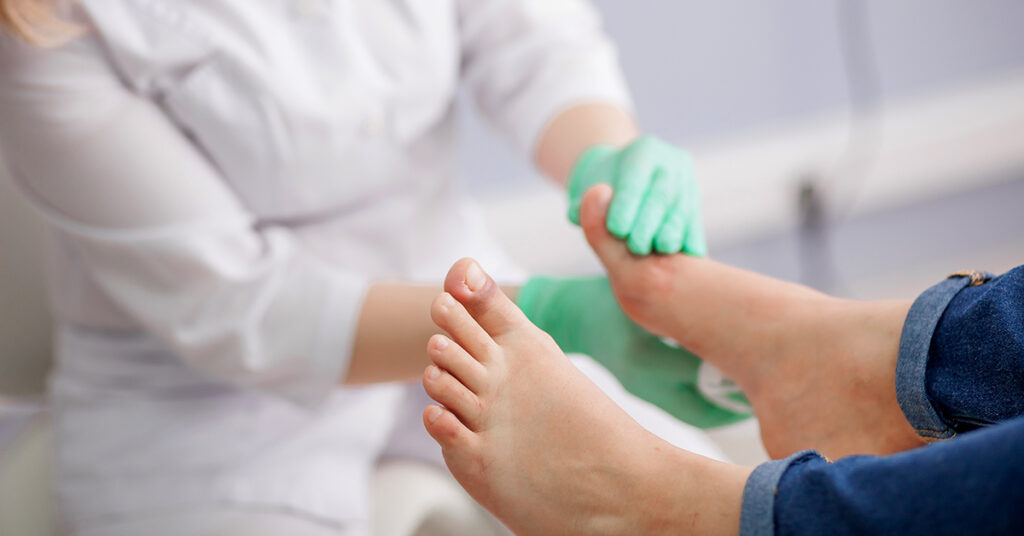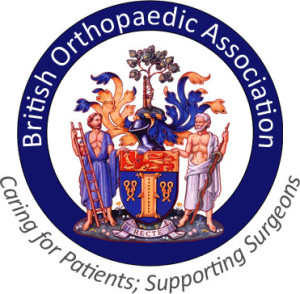Rheumatoid arthritis is a condition that causes painful inflammation in the joints and surrounding tissues. It’s a progressive disease that commonly affects knees, hands and feet. It is the second most common type of arthritis in the UK, affecting approximately one in every 100 people, and it can impact patients of all ages, but it is most common among women and individuals aged 40 to 60 years old.
Rheumatoid arthritis is an autoimmune disease, which means it is caused by the body’s immune system attacking healthy cells. Normally your immune system generates antibodies that protect it from bacteria and viruses. However, in sufferers of rheumatoid arthritis antibodies are mistakenly sent to the lining of the joints where they attack the surrounding tissues.
Over time the inflammation caused by rheumatoid arthritis can damage the joints causing further pain and complications. Unfortunately we don’t know the cause of rheumatoid arthritis and there is no cure. There are, however, treatments that can help to manage symptoms and prevent further damage to the joints.
Rheumatoid arthritis symptoms
The symptoms of rheumatoid arthritis usually develop slowly over weeks, but in rare cases they can take affect quickly, within just days. Symptoms can typically include:
- Painful and achy joints.
- Swelling around the joints, making the area feel warm and tender.
- Stiffness, particularly in the morning or after sitting for long periods of time.
You may also experience more general symptoms such as:
- Tiredness or flu-like symptoms such as a fever.
- Associated inflammation in other areas of the body such as the eyes or lungs.
There are times when symptoms can ‘flare up’ and intensify. These flare ups can be difficult to predict but can be managed and sometimes prevented through various treatments.
During these episodes it can be hard for sufferers to continue with their everyday activities. In between flare ups symptoms can be much more manageable or even nonexistent.
Diagnosing rheumatoid arthritis
Prompt diagnosis is really important, so if you’re experiencing mild symptoms book an appointment to see your GP. The sooner you can start receiving treatment, the better.
Your GP may carry out blood tests to check for indications of rheumatoid arthritis. X-rays and scans may also be organised to check for inflammation and damage to the joints.
If your GP suspects that you are suffering from rheumatoid arthritis, they will refer you to a rheumatologist who is doctor that specialises in treating arthritis. We work closely with a number of excellent rheumatologists here at Goring Hall Hospital, including Dr Alastair Hepburn, Dr Michael Chard and Dr Kaushik Sanyal.
Rheumatoid arthritis treatments
Because we don’t know the underlying cause of rheumatoid arthritis there is currently no known cure. There are, however, a number of treatments that help to manage symptoms, slow down the progression of the disease and prevent further deterioration of the affected joints.
Medication
Painkillers and anti-inflammatory medication are usually prescribed to help control pain and stiffness. The lowest possible dose will be used to minimise the possibility of side effects.
Proton pump inhibitors
Proton pump inhibitors may also be prescribed alongside anti-inflammatory medication to protect the stomach and further reduce side effects. These work by reducing the amount of stomach acid produced by the glands in the lining of the stomach.
Steroids
During a flare up steroids may be prescribed to reduce inflammation and relieve pain.
Disease-modifying anti-rheumatic drugs (DMARDs)
DMARDs include a number of different medications that aim to reduce the long term damage to joints caused by inflammation.
Biological treatments
If DMARDs prove ineffective, you may be offered biological treatments that prevent your immune system from attacking your joints.
Biological medicines are made from living organisms rather than a chemical process and are less likely to produce side effects.
Surgery
In cases where the joints have been become severely damaged, surgery can help to restore functionality and relieve pain. Treatments can include joint replacement, synovectomy and arthroscopy.
If your rheumatologist or GP thinks that you are a good candidate for surgery, they will refer you to an orthopaedic surgeon such as Mr Shah for an assessment. Alternatively, you can refer yourself for a private consultation.
For more information on rheumatoid arthritis and advice on managing the condition, visit Arthritis Research UK.






